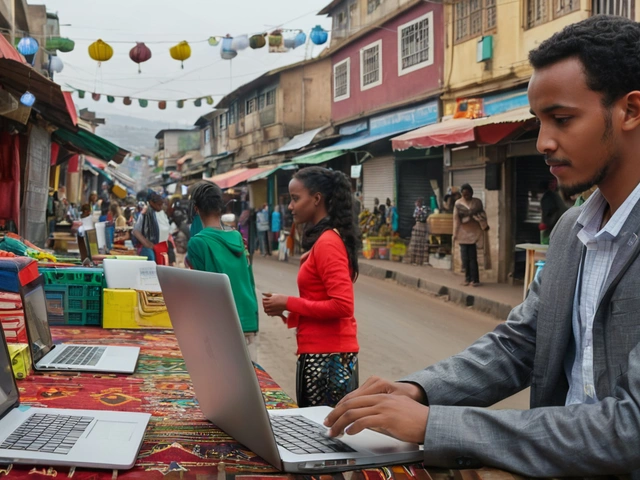Life in a Low Income Country: What It's Like in Ethiopia
When you think of a low income country, there are lots of assumptions. Ethiopia often comes up in those conversations, but the truth is a lot more layered. Ever wondered what people really earn, spend, and how they build a better life here? You’re about to find out.
Let’s start with salaries. The average monthly income for most people in Ethiopia is a fraction of what you’d see in wealthier countries. Teachers, for example, might make $100–200 a month. A pharmacist or skilled professional could earn more but it’s not going to reach Western standards. Minimum wage laws exist, but not everyone benefits equally. Realistically, pay varies wildly by region and job sector.
Now, don’t let the numbers scare you off right away. The cost of living is lower than most places. Housing, transportation, and food are all cheaper, but that doesn’t mean everyone’s got it easy. In big cities like Addis Ababa, rent and daily expenses can eat up most of your paycheck if you’re not careful. Want to rent an apartment in Addis Ababa? Expect prices to be all over the place—some places charge five times more than others, depending on the neighborhood and amenities.
The job market’s got some hidden gems, if you know where to look. Tech and construction are booming, and agriculture is still a big deal. People are also getting creative to add to their income—think freelance gigs, online jobs, and starting small businesses. There’s a growing trend of folks finding ways to make money online, from simple digital freelancing to selling crafts internationally. Internet access isn’t perfect everywhere, but city life opens up digital side hustles.
Are foreigners working in Ethiopia? Absolutely, but they’ve got to clear a few more hurdles—like paperwork and navigating the local culture. If you’re a US citizen or from another country thinking about a move, you need to know the rules and what you can realistically expect to earn. It’s not Silicon Valley pay, but the experience can be eye-opening (and sometimes life-changing).
What about the wealthy? Ethiopia has its share of millionaires—and even a few billionaires—mostly in business and agriculture. Learning how these folks made it can spark ideas for anyone looking to make a mark. Still, the gap between the rich and poor is real, so chasing the good life here means thinking carefully, spotting opportunities, and knowing the risks.
Daily challenges do exist—finding affordable housing, dealing with local customs, and making the most out of limited resources takes grit. But there’s a resilient drive in people to push forward, tap into new ventures, and build up their future.
If you’re trying to wrap your head around life in Ethiopia or want real info on what it takes to get ahead financially in a low income country, you’re in the right spot. Stick around, follow the practical tips, and you just might see the opportunities hiding in plain sight.





